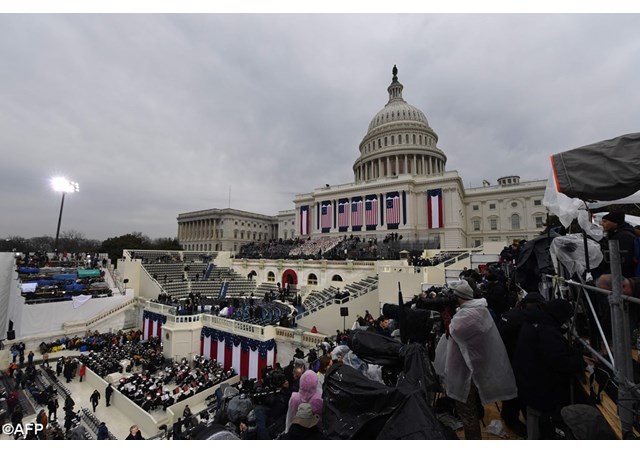
Catholic concerns ahead of President Trump's inauguration

(Vatican Radio) Friday January 20th marks the day that Donald Trump is sworn in as 45th president of the United States of America, following an election campaign that has deeply divided the nation.
Trump will attend a service at St John’s Episcopal Church near the White House and swear the oath of office before delivering his inaugural address on Capitol Hill.
He and vice president Mike Pence then lead a parade, under tight security, down Pennsylvania Avenue which is expected to be lined with both supporters and those protesting against the views and policies of the new president.
Massimo Faggioli is a historian, author and professor of theology at Villanova University in the United States. He talked to Philippa Hitchen about his expectations for the Trump presidency and the divisions that have also marked the Catholic Church in the lead up to this inauguration day
Professor Faggioli notes that during the election campaign the majority of American bishops were very focused on abortion which he describes as “the single defining issue of American politics from a religious point of view”. Thus, he says, their main concern “wasn’t about the election of the new president, but about the future configuration of Supreme Court. Therefore Trump’s pledges to appoint anti-abortion judges, he says, got the sympathy of the majority of U.S. bishops, who overlooked “the deeply troubling rest of Trump’s message”.
Faggioli notes that the Catholic Church is the largest and most important Church nationally, in that it reaches “every latitude, every state, every social status, every ethnicity, every culture, so it has a special responsibility which I think it hasn't fulfilled completely during this last year”.
Faggioli believes that the Trump Presidency will be unpredictable on many levels, depending in large measure on “whether he’ll be the real president” or whether vice president Pence - a former Catholic “who knows the religious landscape much better than Trump” - will play a big role. One of the interesting features of the election, he adds, was Trump’s “ability to bypass completely all cultural mediation” and cultural gatekeepers, including the Catholic bishops.
Commenting on relations with the Vatican, Faggioli says usually local bishops have a role of drawing lines and defending Church positions, while the Vatican is the “realpolitik actor”. But in this situation, he says the Vatican may “have to play both roles with Trump”, respectingCatholi him as the elected leader, but at same time, given the Pope’s focus on issues like immigration and refugees, the Vatican “will also have to play the role of drawing lines as the U.S. bishops have so far been reluctant to do”. He notes the pragmatic, wait-and-see view the bishops took at their last annual assembly, in contrast to their strident declarations eight years ago following President Obama’s election.
Asked about any possible areas of convergence between the pope and the new president, Faggioli points to both men’s concern for “a certain kind of globalization” without rules and respect for the needs of national workforces”.
| All the contents on this site are copyrighted ©. |


